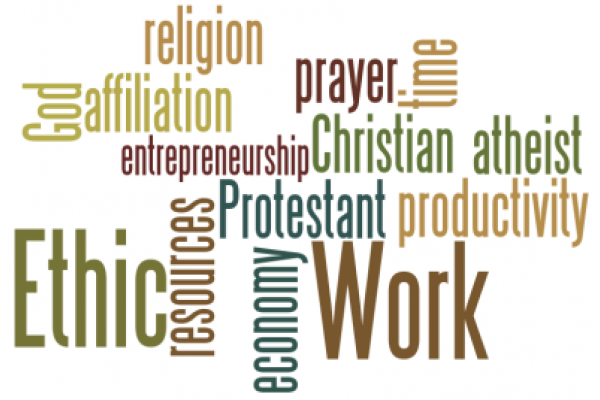America’s vaunted Protestant work ethic is getting a makeover: Now it might be more of an atheist work ethic.
In other words, the less religious a state’s population, the more likely it is to have a healthy economy.
The study, titled “Religion: Productive or Unproductive?” by economists Travis Wiseman of Mississippi State University and Andrew Young of West Virginia University, was published in the March edition of the Journal of Institutional Economics.
In the study, Wiseman and Young find that the “measure of total Christian adherents is robustly and positively correlated with states’ unproductive entrepreneurship scores” in a given state.
“This could be because religion imposes opportunity costs in terms of time and resources that may otherwise have been devoted toward productive entrepreneurship,” they write. “For example, time spent in church reduces time available for engaging in business activity. More subjectively, religion may create psychic costs to pursuing worldly gains rather than salvation in the beyond.”
On the flip side, they find that the percentage of a state’s atheists or agnostics is “positively and significantly related to productive entrepreneurship” within that state.
“One possibility is that productive entrepreneurial activities are largely substitutes for religious ones,” Wiseman and Young suggest.
The study, which stemmed from Wiseman’s doctoral dissertation and is part of a larger work on entrepreneurial practices, relied on data from the Pew Forum on Religion and Public Life’s Religious Landscape Survey of 2007, Gallup’s State of the States surveys of 2004 and 2008, and the U.S. Census Bureau’s Religious Congregations and Membership studies of 2000 and 2010 .
The authors do not, however, rank individual states according to their score. In separate studies, Gallup has ranked Mississippi, Utah, Alabama, Louisiana, and South Carolina as the five most religious states; Vermont, New Hampshire, Maine, Massachusetts, and Oregon were the five least religious states.
The authors examined the religious affiliation of each state’s population, as well as their level of religiosity based on four factors — attendance at religious services, belief in God, prayer, and the level of importance placed on religion.
Kimberly Winston writes for Religion News Service. Via RNS.
Got something to say about what you're reading? We value your feedback!
